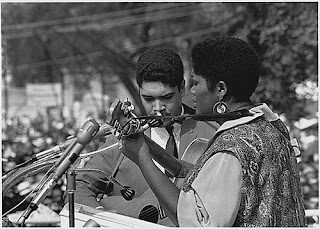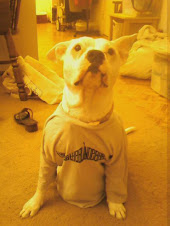
Actually William, it really is something...Word came today that Morrissey, he of gold lame shirts and pompadours, signed a release deal with Lost Highway Records, the Americana-based record company, for Morrissey's new record. "Years of Refusal" drops February 17, followed by a US tour that covers the east coast and midwest.
Morrissey has inked a U.S. deal with Lost Highway for the release of his new album, "Years of Refusal," Billboard can reveal. Due Feb. 17, the project will be issued in conjunction with the former Smiths frontman's own Attack imprint.
Lost Highway is an intriguing destination for Morrissey, as it is most commonly associated with roots- and country-leaning acts such as Ryan Adams, Willie Nelson, Lyle Lovett and Lucinda Williams. The label is also the U.S. home for Van Morrison and Elvis Costello.
"Refusal" will be supported by an extensive North American tour, including shows in three different New York venues (Bowery Ballroom, Webster Hall, Carnegie Hall).
The album was previewed for media last week in London, from where Polydor will handle the international release. First single "I'm Throwing My Arms Around Paris" arrives Feb. 9; guitar legend Jeff Beck guests on the track "Black Cloud."
Track list for "Years of Refusal"
"Something Is Squeezing My Skull"
"Mama Lay Softly On The Riverbed"
"Black Cloud"
"I'm Throwing My Arms Around Paris"
"All You Need Is Me"
"When Last I Spoke to Carol"
"That's How People Grow Up"
"One Day Goodbye Will Be Farewell"
"It's Not Your Birthday Anymore"
"You Were Good In Your Time"
"Sorry Doesn't Help"
"I'm OK By Myself"
Morrissey's North American tour dates
Feb. 28: Boca Raton, Fla. (Mizner Park)
March 1: Orlando, Fla. (Hard Rock Live)
March 3: Jacksonville, Fla. (Florida Theater)
March 4: St. Petersburg, Fla. (Jannus Landing)
March 6: Myrtle Beach, S.C. (House of Blues)
March 7: Atlanta (Variety Playhouse)
March 9: Asheville, N.C. (Orange Peel)
March 11: Durham, N.C. (Durham PAC)
March 13: Richmond, Va. (the National)
March 14: Washington, D.C. (Warner Theater)
March 16: Montclair, N.J. (Wellmont Theater)
March 17: Pittsburgh (Carnegie Music Hall)
March 19: Buffalo, N.Y. (Center for the Arts)
March 21: New York (Bowery Ballroom)
March 22: Philadelphia (Academy)
March 25: New York (Webster Hall)
March 26: New York (Carnegie Hall)
March 28: Mashantucket, Conn. (Foxwoods)
March 29: Boston (House of Blues)
March 31: Ann Arbor, Mich. (Michigan Theater)
April 1: Columbus, Ohio (Palace Theater)
April 3: Milwaukee (Eagles Ballroom)
April 4: Chicago (Aragon Ballroom)
April 6: Minneapolis (State Theater)
April 7: Kansas City, Mo. (Midland Theater)
April 8: St. Louis (Pageant)
April 10: Dallas (Palladium Ballroom)
April 11: Houston (Jones Hall)
April 12: Austin, Texas (Bass Concert Hall)
April 14: El Paso, Texas (Chavez Theater)
April 15: Albuquerque, N.M. (Sunshine Theater) (Source)

























